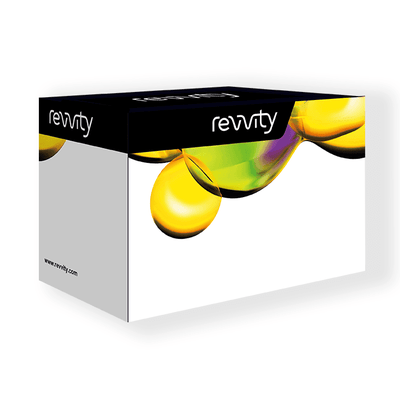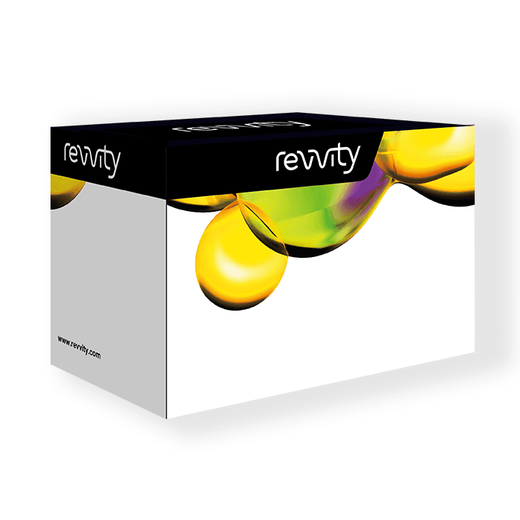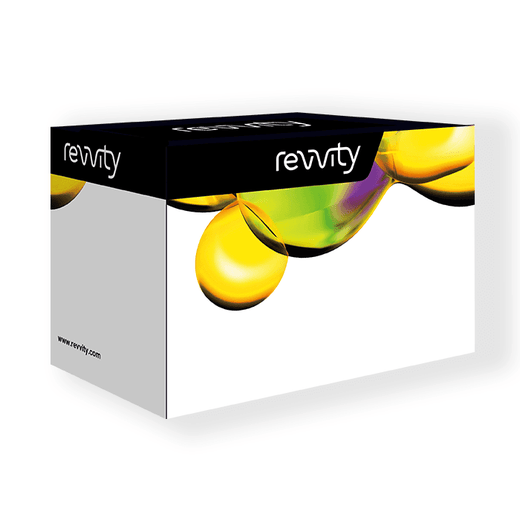

HTRF Human Total VEGFR2 Detection Kit, 500 Assay Points


HTRF Human Total VEGFR2 Detection Kit, 500 Assay Points






The Total VEGFR2 kit monitors the cellular VEGFR2 expression level and can be used as a normalization assay for the Phospho-VEGFR2 kit.
For research use only. Not for use in diagnostic procedures. All products to be used in accordance with applicable laws and regulations including without limitation, consumption and disposal requirements under European REACH regulations (EC 1907/2006).
| Feature | Specification |
|---|---|
| Application | Cell Signaling |
| Sample Volume | 16 µL |
The Total VEGFR2 kit monitors the cellular VEGFR2 expression level and can be used as a normalization assay for the Phospho-VEGFR2 kit.
For research use only. Not for use in diagnostic procedures. All products to be used in accordance with applicable laws and regulations including without limitation, consumption and disposal requirements under European REACH regulations (EC 1907/2006).



HTRF Human Total VEGFR2 Detection Kit, 500 Assay Points



HTRF Human Total VEGFR2 Detection Kit, 500 Assay Points



Product information
Overview
Homogeneous cell-based assay for monitoring total VEGFR2 modulations. VEGFR2 mediated signaling data has uses in angiogenesis, vascular permeability, and cancer stem cell regulation research.
Specifications
| Application |
Cell Signaling
|
|---|---|
| Brand |
HTRF
|
| Detection Modality |
HTRF
|
| Lysis Buffer Compatibility |
Lysis Buffer 1
Lysis Buffer 2
Lysis Buffer 4
Lysis Buffer 5
|
| Molecular Modification |
Total
|
| Product Group |
Kit
|
| Sample Volume |
16 µL
|
| Shipping Conditions |
Shipped in Dry Ice
|
| Target Class |
Phosphoproteins
|
| Target Species |
Human
|
| Technology |
TR-FRET
|
| Therapeutic Area |
Cardiovascular
NASH/Fibrosis
Neuroscience
Oncology & Inflammation
|
| Unit Size |
500 Assay Points
|
Video gallery

HTRF Human Total VEGFR2 Detection Kit, 500 Assay Points

HTRF Human Total VEGFR2 Detection Kit, 500 Assay Points

How it works
Total VEGFR2 assay principle
The total VEGFR2 assay measures VEGFR2. Contrary to Western Blot, the assay is entirely plate-based and does not require gels, electrophoresis or transfer. The total VEGFR2 assay uses 2 labeled antibodies: one with a donor fluorophore, the other one with an acceptor. The first antibody is selected for its specific binding to the phosphorylated motif on the protein, the second for its ability to recognize the protein independent of its phosphorylation state. Protein phosphorylation enables an immune-complex formation involving both labeled antibodies and which brings the donor fluorophore into close proximity to the acceptor, thereby generating a FRET signal. Its intensity is directly proportional to the concentration of phosphorylated protein present in the sample, and provides a means of assessing the protein’s phosphorylation state under a no-wash assay format.

Total VEGFR2 2-plate assay protocol
The 2 plate protocol involves culturing cells in a 96-well plate before lysis then transferring lysates to a 384-well low volume detection plate before adding total VEGFR2 HTRF detection reagents. This protocol enables the cells' viability and confluence to be monitored.

Total VEGFR2 1-plate assay protocol
Detection of total VEGFR2 with HTRF reagents can be performed in a single plate used for culturing, stimulation and lysis. No washing steps are required. This HTS designed protocol enables miniaturization while maintaining robust HTRF quality.

Assay validation
Insulin dose response effect on Phospho and Total VEGFR2 assays on Huvec cells
Huvec cells were plated at 150,000 cells per well in a 96-well plate. After an overnight incubation at 37°C, 5% CO2, a serial dilution of human VEGF was added to the cells for 3 minutes at 37°C, 5% CO2. Stimulation medium was removed from cells and 50µL of lysis buffer were added. A lysis step was carried out, shaking gently for 30 minutes. 16µL of samples were transferred into a 384-well small volume plate, then 4µL of Phospho VEGFR2 HTRF detection reagents were added. In parallel, 16µl were dispensed into other wells, then 4µL of HTRF Total VEGFR2 detection reagents were added. Signals were recorded overnight.

Western Blot comparison with Total VEGFR2 detection
Human Huvec cells were cultured to 80% confluency. After 3 minutes of hVEGF treatment, cells were lysed and soluble supernatants were collected via centrifugation. Serial dilutions of the cell lysate were performed, and 16 µL of each dilution were transferred into a 384-well low volume white microplate before finally adding VEGFR2 cellular kit detection reagents.
A side by side comparison showed the HTRF total assay is at least 32-fold more sensitive than the Western Blot.

Simplified pathway
The vascular endothelial growth factor (VEGF) is an endothelial-specific mitogen factor that is often associated with the activation of tumour-induced angiogenesis. In tumours, VEGF secretion is upregulated. At the endothelial cell surface, the secreted protein binds with high affinity to at least two distinct vascular endothelial growth factor receptors (VEGFRs), VEGFR-1, also known as fms-like tyrosine kinase (Flt-1) and VEGFR-2, also known as fetal liver kinase (Flk-1).
Activation of endothelial cells by VEGF leads to the receptor auto-phosphorylation and subsequent signaling. Multiple phosphorylation sites have been described.
VEGFR is implicated in angiogenesis, and combined inhibition of VEGF and PDGF signaling enforces tumor vessel regression.

Resources
Are you looking for resources, click on the resource type to explore further.
Protein-protein interactions: cover them all with one approach
This brochure illustrates the possibilities and versatility of...


How can we help you?
We are here to answer your questions.






























